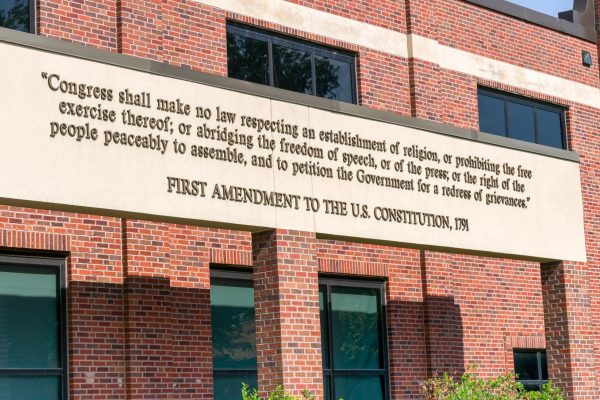Americans need to understand Ebola, worldwide effects
The recent outbreak of the Ebola virus mainly affects three countries in West Africa: Guinea, Liberia and Sierra Leone. Around 8,300 cases and more than 4,000 deaths have been reported across these countries by the World Health Organization.
This is the largest known outbreak of Ebola and only few cases have been reported in the United States.Students, staff and faculty on campus should know about this disease.
A person infected with Ebola virus will typically develop a fever, headache, joint and muscle pain, a sore throat, and intense muscle weakness. People can become infected with the Ebola virus if they come into contact with the blood, body fluids or organs of an infected person.
Most people are infected by giving care to other infected people, either by directly touching the victim’s body or by cleaning up body fluids that carry infectious blood.
Hospital workers, laboratory workers and family members are at greatest risk. Strict infection control procedures and wearing protective clothing minimizes this.
Do not touch anything – such as shared towels – which could have become contaminated in a public place.
But again, one wonders what will be the end result of this disease. Individual nations must take responsibility themselves for dealing with outbreaks and partner nations should guide them in doing so – not holding their hand each time a crisis develops.
The latest outbreak of Ebola across Western Africa illustrates how sorely ill-suited the West’s international agencies are in protecting the global population and how the global population would be better served by finding ways to protect themselves.
Part of what some perceive as the West’s medical tyranny is its creation of circumstances in which subject nations constantly rely on them for aid, expertise and assistance. Such dependence is contrary to national sovereignty and endangers the freedom and security of individuals within that nation.
In Guinea, the government’s inability to handle the crisis has allowed it to grow to dangerous proportions while necessitating the inclusion of foreign agencies the public simply doesn’t trust.
It is an indictment against so-called international health organizations, including WHO, and the many Western-backed agencies that work in the field on its behalf.On the contrary, Ebola has exposed some of the corrupt governments in Africa.
Money has poured in from the West but it has gone to waste. Ebola should make us think about how the West gives aid to Africa – aid has not been used to create a system able to cope with this challenge.
Your donation will support the student journalists of Park University. Your contribution will allow us to cover our annual website hosting costs, freeing up other funds for equipment, printing and training.





